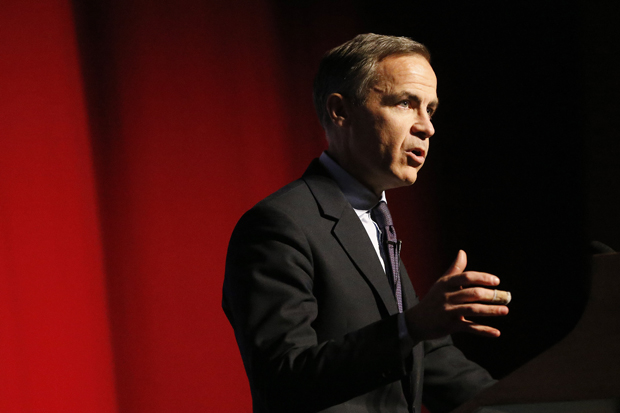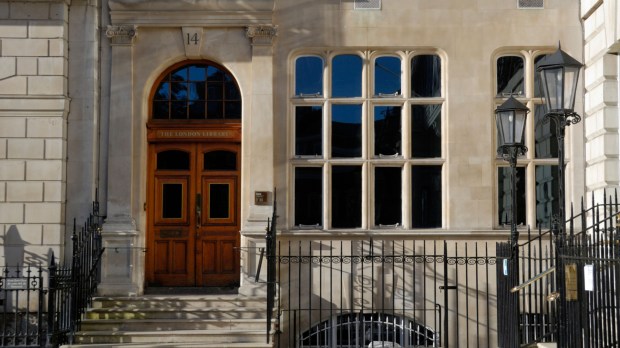Surely there is a difference between Mark Carney’s intervention in the Scottish referendum last year and in the EU one now. In the first, everyone wanted to know whether an independent Scotland could, as Alex Salmond asserted, keep the pound and even gain partial control over it. The best person to answer this question was the Governor of the Bank of England. So he answered it, and the answer — though somewhat more obliquely expressed — was no. For the vote on 23 June, there is nothing that Mr Carney can tell us which we definitely need to know and which only he can say. So when he spoke to the Treasury Committee of the House of Commons on Tuesday, his opinion was no better than that of any intelligent and well-connected person who deals with money. In one respect, it was much worse. Unless the Governor must say something before a vote, there is a strong presumption that he should say nothing, since his remarks can compromise his hard-won independence. Mr Carney does not seem to understand this. His claim that a vote to leave was ‘the biggest domestic risk to financial stability’ was a speculation, a market-wobbling piece of punditry from a man whose ‘forward guidance’ has had to be surreptitiously retracted. I wonder what he thinks is the biggest non-domestic risk to financial stability. If he thinks it is the euro, would he dream of saying so?
Unlike in the 1975 referendum, where the ‘yes’ campaign was an almost free-standing enterprise led by first-rank politicians of all parties (Edward Heath, Roy Jenkins), the ‘remain’ campaign so far is driven by Downing Street. True, nice Alan Johnson and the ponderous, bewildered Lord Rose pop up a bit, but all the tricks — the public letter purporting to be written by ex-generals, the interference with the British Chambers of Commerce, perhaps even Mr Carney’s warm endorsement of David Cameron’s deal — have been inspired by No. 10. In 1975, Harold Wilson, the Prime Minister, adopted a position almost of neutrality so that he could emerge after the vote as a reconciler, but Mr Cameron has pitched in. He is a good campaigner, so his tactic may pay off, but there is a serious risk that voters will feel that, by voting ‘remain’, they are being asked to endorse his government. At the last election, only 11,334,576 people voted Conservative, and on 23 June large numbers of those will vote ‘leave’. In 1975, 17,378,581 people voted yes. Will such numbers vote ‘remain’ to give Mr Cameron a vote of confidence?
People — nice people, members of the public, concerned voters — keep coming up to me saying, ‘We want to hear the arguments about the EU referendum.’ It sounds a strange thing to want because, since the last years of Margaret Thatcher’s government, the arguments have rarely been out of the news for a week, and jolly boring they often are. But what such people go on to say is that they seek the objective facts and cannot get them from either side in the campaign. They would like some useful fact sheet which answers all their questions. Well, from time to time, papers like the Telegraph and the Times do contain short investigations of claims made about many of the issues involved, but the truth is that it isn’t easy. One’s judgment of the facts is bound to be affected by one’s view of the EU. In his statement declaring for ‘leave’, for example, Michael Gove said that Mr Cameron’s ‘victory’ over Britain’s commitment to ‘ever-closer union’ could not have the force of law. The European Court of Justice (ECJ), he asserted, could always overrule any agreement (even this one which, as Mr Cameron’s people excitedly boasted, would be ‘lodged at the United Nations’) if it deemed it in conflict with the existing European treaties. In my view, Mr Gove is right. His point goes to the heart of the matter, because the ECJ’s relentlessly one-directional political interpretations of EU law are what make the structure beyond redemption. It is a core objection to the EU way of doing things that facts are endlessly twisted to fit the teleology. But in such a politicised legal order, facts are murky. This argument is like Protestantism versus Catholicism, communism versus capitalism. The facts matter, of course, but they will never settle the question.
One usually reads that the other member states of the EU want us to stay in. But I hear anecdotally that the French and Germans are now so annoyed with us that they actually would like us to go. They think we are being selfish in not helping the union in its hour of need. Why, when it is menaced by the problems of the euro and of migration, do we fuss about our own little problems instead of showing ‘solidarity’? I suppose their complaint is justified, or at least shows the gulf between the two sides. The British, with our transactional view of the EU, cannot see much point in making huge sacrifices to shore up something which isn’t working when our first duty is to our own people. Most of the others think that the higher duty is to the ideal and so want us to shoulder ever-greater burdens, like poor Boxer in Animal Farm.
This column has mentioned more than once the dreadful treatment posthumously handed out by the authorities of the Church of England to George Bell, the heroic wartime Bishop of Chichester. Without due process, they declared that he had abused a child, later revealed to be a girl, between 1949 (when she was five years old) and 1953. Supporters of Bell are working hard and will soon have something pretty comprehensive to say about the case. In Oxford recently, I visited Christ Church, where (see Notes, 13 February), the Bishop Bell altar remains honoured in the cathedral. It is a rough-hewn table of blackened oak with a crucifix, cut out of its side, lying beside it. It was moving to discover that the altar was given by the Queen, who is the Visitor of the college, and the oak is her oak, from Windsor.
 Join The Spectator at the Budget Briefing with Andrew Neil, Fraser Nelson and James Forsyth.
Join The Spectator at the Budget Briefing with Andrew Neil, Fraser Nelson and James Forsyth.
16 March 2016 | British Museum, Great Russell Street, London WC1B 3DG
Book now.
Got something to add? Join the discussion and comment below.
Get 10 issues for just $10
Subscribe to The Spectator Australia today for the next 10 magazine issues, plus full online access, for just $10.
You might disagree with half of it, but you’ll enjoy reading all of it. Try your first month for free, then just $2 a week for the remainder of your first year.















Comments
Don't miss out
Join the conversation with other Spectator Australia readers. Subscribe to leave a comment.
SUBSCRIBEAlready a subscriber? Log in